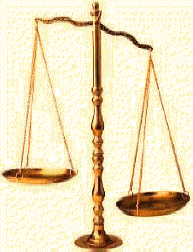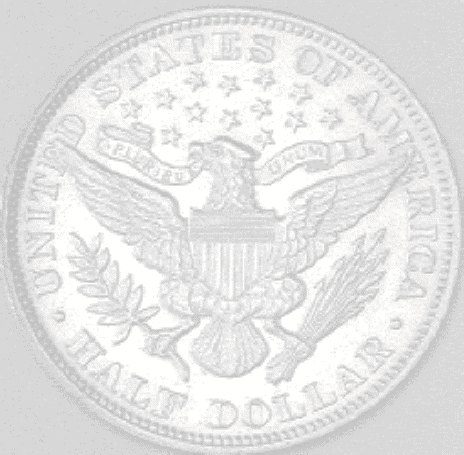
|
|
||
|
|
|
|
|
|
||

-7-
FOR BETTER OR WORSE:
Inflation
The Act of March
23, 1863 authorized the printing of an additional 50,000,000 "dollars.”
The butcher who before required one "dollar" for a pound of his bacon
now demanded 4 "dollars," and the merchant who before asked 4 "dollars"
for a bushel of beans, now demanded 30 "dollars." While the parity
between a "dollar" and a pound of bacon rose from 1 to 1, to 1 to 4; the
parity between the currency and the bushel of beans rose from 1 to
4, to 1 to 50.
Food riots were a constant threat to the
Confederacy. By December, gold reached a parity of 1 to 26: People
demanded 20 paper "dollars" in exchange for what 1 "dollar" in gold
could buy. The value of paper "money" rested upon the viability of other
paper currency. God had given fair warning as to the immoral
consequences of utilizing a system of varying standards of weights and
measures, and He said a just weight was His delight and any other kind
was an abomination. (Proverbs 11:1)
In 1864, the Confederacy issued its last paper
"money." A total of 200,000,000 "dollars" was authorized, but a total of
2 billion may have been printed. The more currency was printed, the more
inflation grew. Inflation disguises itself by what appears to be price
increases, and the more prices appeared to rise, the more currency was
printed!
By October 1, an exchange of 26 "dollars" in
Confederate currency was required for a transaction that could be
completed with 1 "dollar" in gold. Due to the lack of coinage,
Confederate stamps were printed and circulated.
Repudiation
An attempt was made to patch the economy. An Act was passed on February 17th ordering 11 Confederate notes over 5 "dollars" be turned in to the Treasury in exchange for 20 year bonds and certificates. The government placed a 33 1/2 percent tax on all 100 "dollar" notes and added a 10 percent penalty every month they were not redeemed. All lO0 "dollar" notes not turned in by the end of the year would be taxed 100 percent. This amounted to repudiation, and Secretary of the Treasury Memminger tried in vain to reconcile his plan with honesty and integrity. "No contract," he declared, "however solemn can require national ruin, and in such case the maxim must prevail that the public safety is the supreme law” (White, 170). Southerners, however, did not relish the idea of surrendering their currency, which they could exchange for something, for bonds and certificates, which they would, without a doubt, be unable to exchange for anything. They accordingly ignored the threat.
Economic Woes
Other problems plagued
the Confederate economy. First, the Union naval blockade had proved
effective, and cotton exports were brought to a screeching halt early in
the war. Second, at the sight of the approaching Union Army, Southerners
burned their property to keep it from falling into enemy hands. Third,
the prevalence of "wildcat" banking practices enhanced her woes.
Individual states printed their own paper "money", as did banks, towns,
counties, businesses, and even a few individuals. But if the government
could print "money", why was it not reasonable the citizenry could do
the same? This, however, was branded as "illegal counterfeiting."
